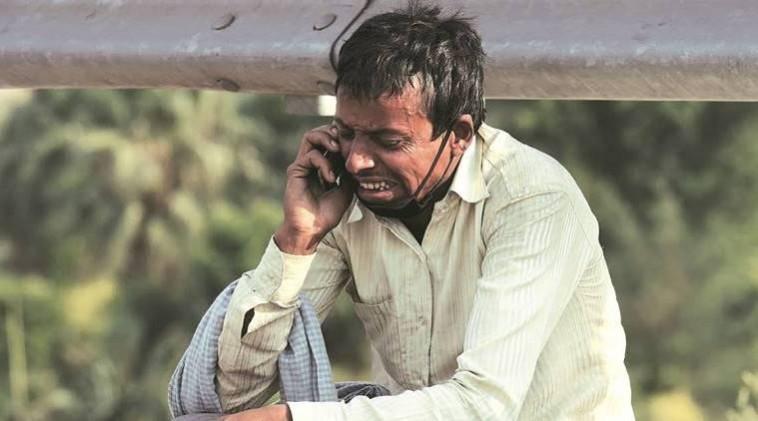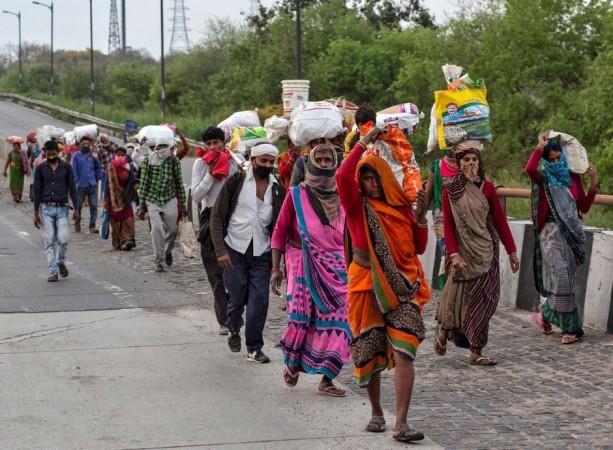A picture went viral and was hugely responded to as it showed emotions and angst caused to migrants and those stranded during the coronavirus pandemic but this particular picture expressed the helplessness of a father, who couldn't reach home to perform the last rites of his one-year-old son. Reason; he was stranded in Delhi, had lost his job and did not have access to a transport mode to get back to Bihar.
Ram Pukar Pandit (38), a migrant labourer living in Nawada, heard from his wife from Begusarai in Bihar that their son had died due to a serious illness. He immediately left home to see the child one last time but could not find a way to travel home and decided to walk back from Najafgarh in Delhi, where he worked before the lockdown happened.

Toughest journey of helpless father
Ram Pukar was stopped by Ghaziabad Police near UP Gate. The police did not listen to him and he got stranded near the Gazipur flyover for the next three days. Though, he told the officials and policemen that he had lost his son and wanted to see him one last time but got no response. For the next three days he slept under the flyover at night and got food from NGO workers and policemen.
It was on Thursday when he was dropped at the New Delhi Railway Station when some policemen from East Delhi helped him. He boarded a special migrant train to Bihar along with hundreds of others. Though, Ram Pukar reached Begusarai but was not allowed to meet his family and was taken to an MCD school to be screened for COVID-19.
He however stated that he is now hopeful that he will meet his family but what hurts him most is that he couldn't see his son and could not perform his last rites. He said, "I won't be able to see my son again."

His son was suffering from a stomach infection, which caused his death.
A construction labourer, Pandit has been working in Delhi for over a decade and earned Rs 7,000-Rs 8,000 a month. He met his family once in two to three months and his younger brother took care of his children back home.
Ram Pukar is among India's nearly 40 million internal migrants whose livelihoods have been severely affected due to the lockdown.

















